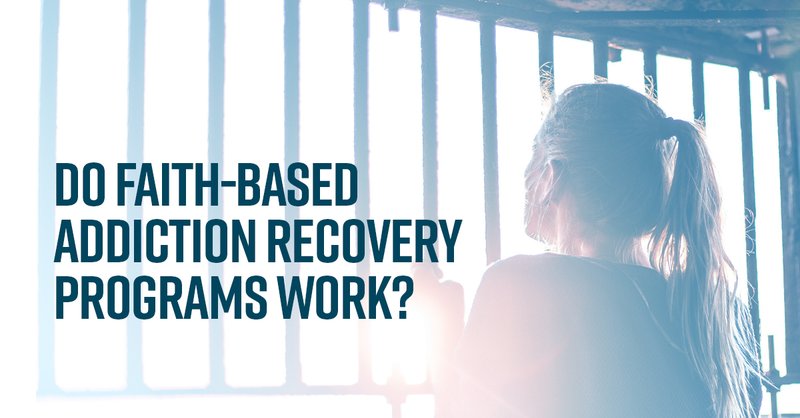· Contemporary Living · 9 min read
Christian Perspective on Current Events: Navigating Faith, Politics, and Environmental Stewardship
Explore the Christian perspective on current events, faith in politics, and environmental stewardship. Learn how to navigate these issues while engaging with secular media and practicing discernment in arts and entertainment.

Christian Perspective on Current Events: Navigating Faith, Politics, and Environmental Stewardship
In today’s world, it can be challenging for Christians to navigate the ever-changing landscape of current events. With the rise of secular media and the increasing polarization of politics, it is crucial for believers to approach these issues from a strong Christian perspective. This article aims to provide a comprehensive guide for Christians on how to engage with current events, understand the intersection of faith and politics, and embrace environmental stewardship. By exploring key questions in these areas, we will delve into the ethical considerations, practical applications, and biblical principles that can guide Christians in their engagement with the world around them.
1. How should Christians engage with secular media?
Engaging with secular media requires discernment and critical thinking from a Christian perspective. While it is essential to stay informed about current events, it is equally important to filter the information through a biblical worldview. As Christians, we should be cautious of biased reporting or narratives that contradict our faith. We must seek truth and rely on credible sources that prioritize accuracy and integrity.
The Bible encourages believers to test everything against God’s Word (1 Thessalonians 5:21). When consuming news or media content, Christians can evaluate its alignment with biblical values and principles. It is crucial to consider the source’s credibility, fact-check claims, and seek multiple perspectives before forming opinions or making judgments. By engaging with secular media responsibly, Christians can actively participate in shaping public discourse while remaining grounded in their faith.
According to “A Christian Guide to Political Engagement” by the Ethics & Public Policy Center, “Anxiety and animosity are a driving force behind a number of candidacies.” This highlights the need for Christians to engage with secular media critically and discerningly.
2. How does faith intersect with politics and voting?
For Christians, faith should inform their political engagement and voting decisions. The Bible teaches that all aspects of life, including politics, should be under the lordship of Christ. As such, Christians have a responsibility to seek God’s guidance and wisdom when participating in the political process.
Before casting a vote, Christians should engage in prayerful discernment and seek wise counsel. It is essential to align one’s political choices with biblical values and principles. This means evaluating candidates’ positions on issues such as the sanctity of life, religious freedom, justice, compassion for the marginalized, and stewardship of resources.
While Christians may have different opinions on specific policies or candidates, it is crucial to prioritize the common good and the flourishing of society. Christians should strive to be salt and light in the political arena, advocating for justice, righteousness, and the values of God’s kingdom.
In “How Should Christians Vote? A Biblical Perspective,” it states, “Political engagement: Voting is just one way Christians can make a positive impact on society. Active engagement in local politics and community service can …” This highlights that voting is not the only way Christians can engage with politics but should also actively participate in local politics and community service.
3. How can Christians practice environmental stewardship?
Environmental stewardship is an important aspect of the Christian faith. God created the Earth and entrusted humans with its care (Genesis 1:28). As stewards of God’s creation, Christians are called to be responsible caretakers of the environment.
Practicing environmental stewardship involves adopting sustainable lifestyles and making choices that minimize harm to the Earth. This can include conserving resources, reducing waste, recycling, using renewable energy sources, supporting conservation efforts, and advocating for policies that protect the environment.
Christians can find inspiration for environmental stewardship in Scripture. The Bible speaks of God’s love for creation (Psalm 24:1) and His desire for humans to be good stewards (Genesis 2:15). It also highlights the interconnectedness of all creation and the importance of caring for the Earth.
In “How evangelicals moved from supporting environmental stewardship to …,” it explains how the idea of Christian environmental stewardship disappeared from the rhetoric of the religious right in the 1990s. This serves as a reminder that Christians need to reclaim their role as stewards of God’s creation.
4. How can Christians discern the impact of arts and entertainment on their faith?
Arts and entertainment have a profound influence on culture and individual perspectives. As Christians, it is crucial to discern the impact of these mediums on our faith and values.
Discernment involves evaluating the content, messages, and underlying worldview presented in arts and entertainment. Christians should ask themselves if a particular movie, TV show, or song aligns with biblical principles and promotes edifying values. This requires being aware of potential themes that may contradict or undermine Christian beliefs.
While discernment does not mean avoiding all forms of secular entertainment, it does mean being intentional about what we consume. Christians can seek out art and entertainment that celebrates truth, beauty, love, justice, and redemption. They can support artists who use their talents to glorify God and contribute positively to society.
In “Christians and Politics: 5 Principles for Christian Interaction with …,” it emphasizes prioritizing Christian witness over political power. This principle can be applied to arts and entertainment as well, encouraging Christians to prioritize media that upholds their faith values rather than pursuing mere popularity or influence.
5. How should Christians navigate the intersection of faith, politics, and social justice?
The intersection of faith, politics, and social justice is a complex area that requires careful consideration for Christians. The Bible calls believers to pursue justice and righteousness (Micah 6:8) while loving their neighbors as themselves (Matthew 22:39).
Christians should approach social justice issues through the lens of their faith, seeking to address systemic injustices and promote equality. This involves examining policies, laws, and practices that perpetuate discrimination or harm to marginalized communities. Christians can advocate for reforms that align with biblical principles of justice, compassion, and human dignity.
However, it is important to recognize that different Christians may have diverse perspectives on specific social justice issues. While the core principles of Scripture provide a foundation for addressing social injustice, the application of those principles can vary. It is essential to engage in respectful dialogue, listen to diverse voices, and seek common ground while upholding the truth of God’s Word.
In “Biblical Principles for Political Engagement,” it explains how examining God’s Word and exploring the role of government can help Christians be politically engaged in a manner consistent with a biblical worldview. This can provide guidance for navigating the intersection of faith, politics, and social justice.
6. How can Christians approach political discourse with grace and humility?
Political discourse often becomes heated and divisive, but as Christians, we are called to approach these conversations with grace and humility. The Bible instructs believers to speak the truth in love (Ephesians 4:15) and to be slow to anger (James 1:19).
Christians should strive to listen attentively, seek understanding, and respond with empathy instead of resorting to personal attacks or hostility. It is essential to remember that our ultimate allegiance is to Christ, not to any political ideology or party. This can help foster a spirit of unity and cooperation even amidst disagreement.
When engaging in political discourse, Christians can focus on common values and shared goals rather than emphasizing differences. They can also model respectful dialogue by actively listening to opposing viewpoints and seeking areas of agreement.
In “Politics in the Pews: Mobilizing the Evangelical faithful in 2024,” it discusses how churches can participate in ballot collection and highlights how Evangelical involvement in politics has evolved. This serves as a reminder that Christians should engage in political discourse while embodying the values of their faith.
7. How can Christians navigate the tension between faith and patriotism?
As Christians, our ultimate allegiance is to God’s kingdom, which transcends national boundaries. However, we can still honor and respect our country while remaining faithful to our faith.
Navigating the tension between faith and patriotism requires maintaining a biblical perspective. Christians can appreciate their country’s values, traditions, and freedoms while recognizing that these are not ultimate sources of identity or salvation.
It is essential to avoid idolizing one’s nation or placing national interests above the values and principles of the Kingdom of God. Christians should prioritize love for all people, including those from different nations or cultures, and work towards justice, peace, and reconciliation on a global scale.
In “How should a Christian view politics? | GotQuestions.org,” it emphasizes that while the will of God takes precedence over everything and everyone, Christians should still honor their country. This highlights the need for Christians to navigate the tension between faith and patriotism with wisdom and discernment.
8. How can Christians engage in current events while maintaining unity within the Church?
Engaging in current events can sometimes lead to divisions within the Church. However, Christians are called to maintain unity and love for one another (John 13:34-35). It is important to approach current events with humility, recognizing that fellow believers may hold different opinions or interpretations.
Christians can prioritize unity by focusing on essential doctrines and core beliefs that unite all believers. They can emphasize the centrality of Christ and His redemptive work as the foundation of their faith.
While differences of opinion are inevitable, Christians can pursue open dialogue, respect diverse perspectives, and seek common ground based on shared biblical principles. It is crucial to remember that our unity as believers is rooted in our shared identity in Christ and our commitment to love one another.
In “Christians Engaging in Politics: A Community Group … - Watermark,” it suggests that Christians should pray together for wisdom and discernment, emphasizing the importance of unity within the Church. This highlights the need for Christians to engage in current events while upholding the values of love, grace, and unity.
By navigating faith, politics, and environmental stewardship from a Christian perspective, believers can engage with current events responsibly and make a positive impact in the world. By prioritizing discernment, biblical principles, and love for God and others, Christians can navigate the complexities of our time while remaining faithful to their calling.



